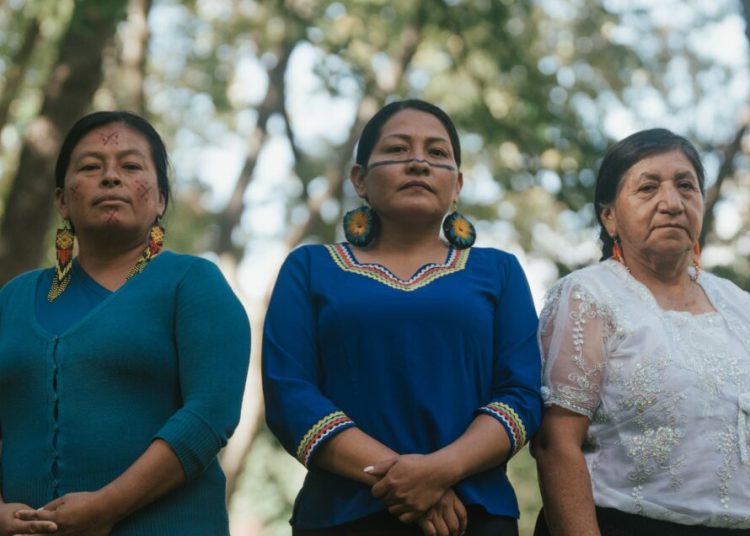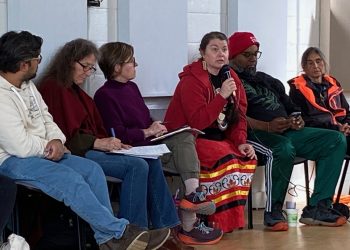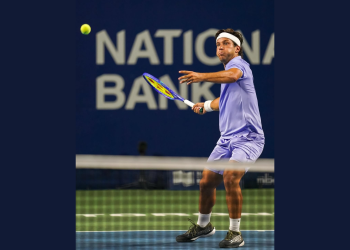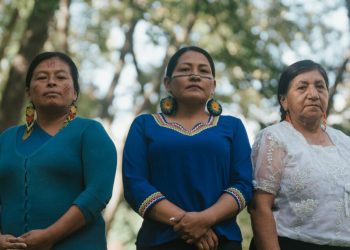Over the past 18 months, the Canadian government has negotiated a free trade agreement with Ecuador, claiming the two countries share important values of respect for democracy and human rights. Yet, during the same time, the human rights situation in Ecuador has deteriorated to unprecedented levels amid militarization and threats to democratic guarantees.
Ecuador’s President Daniel Noboa declared an internal armed conflict in January 2024 against 22 criminal groups operating in the country. After more than a year and a half of militarization, the security situation has worsened. Violent deaths have increased steeply.
Human rights violations are also increasing. Reports of torture during the last year and a half of militarization exceed the four previous years combined. In response to requests for information from the Alliance for Human Rights in Ecuador, the Prosecutor’s Office has also reported an alarming increase in extrajudicial executions and crimes related to the overreach of public force resulting in death. Added to this is a multiplication of forced disappearances condemned—amongst others—by the Inter-American Commission on Human Rights and Amnesty International, in a report titled It was the Military. I Saw Them.
Canada should be equally worried that the Ecuadorian government has used militarization to advance Canadian mining projects. The military was deployed in Palo Quemado and Las Pampas, where campesinos (farmers) have spoken out against the negative impacts of the Canadian-owned La Plata project. Dozens of people were injured—some permanently—and dozens more unjustly criminalized on charges of terrorism. The military was also deployed in Las Naves against people seeking to protect land and water from the Canadian-owned El Domo-Curipamba project. There, too, dozens of environment defenders have been criminalized with fabricated charges by public prosecutors totally lacking in impartiality.
Militarization has been shielded by expediting new legislation that violates Ecuador’s constitution and harms the rule of law. One law allows for the permanent militarization of the country. A law that purports to strengthen protected areas allows Indigenous peoples to be dispossessed of their ancestral territories. Another new law allows authorities to block the bank accounts of civil society organizations without due process or the right of defence. This has affected important, long-standing organizations that work to protect Indigenous rights and the environment, including the Confederation of Indigenous Nationalities of Ecuador, the Ceibo Alliance, the Pachamama Foundation, and the Union of People Affected by Chevron-Texaco. At the same time, social leaders and human rights defenders are the target of spying made possible by a new intelligence law that removes controls on surveillance.
Canada must not ignore these realities. Nor should Canada turn a blind eye to disturbing attacks on judicial independence. In August, Noboa led a march against Ecuador’s Constitutional Court, deployed the military around its premises, and attacked its judges after they suspended articles of recently passed legislation in order to rule on their constitutionality.
While United Nations experts are sounding the alarm, Ecuadorians are taking to the streets to speak up for their rights and protection of the environment. Tens of thousands of people marched last month to protest the Noboa government’s promotion of Canadian mining, and the negative impacts of the Loma Larga project in Azuay.
Thousands more marched this month during a national strike called by the Confederation of Indigenous Nationalities of Ecuador. Their protest was met with militarized repression. Gina Romero, the UN special rapporteur on the rights to freedom of peaceful assembly and association expressed concern about violations of international standards by the military and police during “weeks of excessive use of force and illegal arrests.” The Alliance for Human Rights in Ecuador documented a devastating toll of injuries as demonstrators were shot and two Indigenous community leaders were killed. The repression prompted an urgent call for the protection of the rights of Indigenous Peoples in Ecuador by the UN Permanent Forum on Indigenous Issues.
The Canadian government must not remain indifferent to the bloodshed and the incontrovertible reality of a grave human rights crisis in Ecuador. Governments that truly value human rights and democracy do not cement trade agreements with violators of constitutional guarantees, international obligations, and basic norms of the rule of law and democratic coexistence.
Vivian Idrovo is a lawyer and co-ordinator of the Alliance for Human Rights in Ecuador, a collective of human rights and environmental organizations. Kathy Price is the coordinator of the Americas Policy Group, a national network of Canadian civil society organizations working for human rights, social justice and environmental protection in Latin America.
A version of this article was first published by The Hill Times on October 27, 2025.









![Is pollution from industry causing the neurological disease ALS in New Brunswick? [video]](https://nbmediacoop.org/wp-content/uploads/2025/10/Quintin-Soloviev-Belledune_Generating_Station_in_New_Brunswick_Canada-120x86.jpg)
